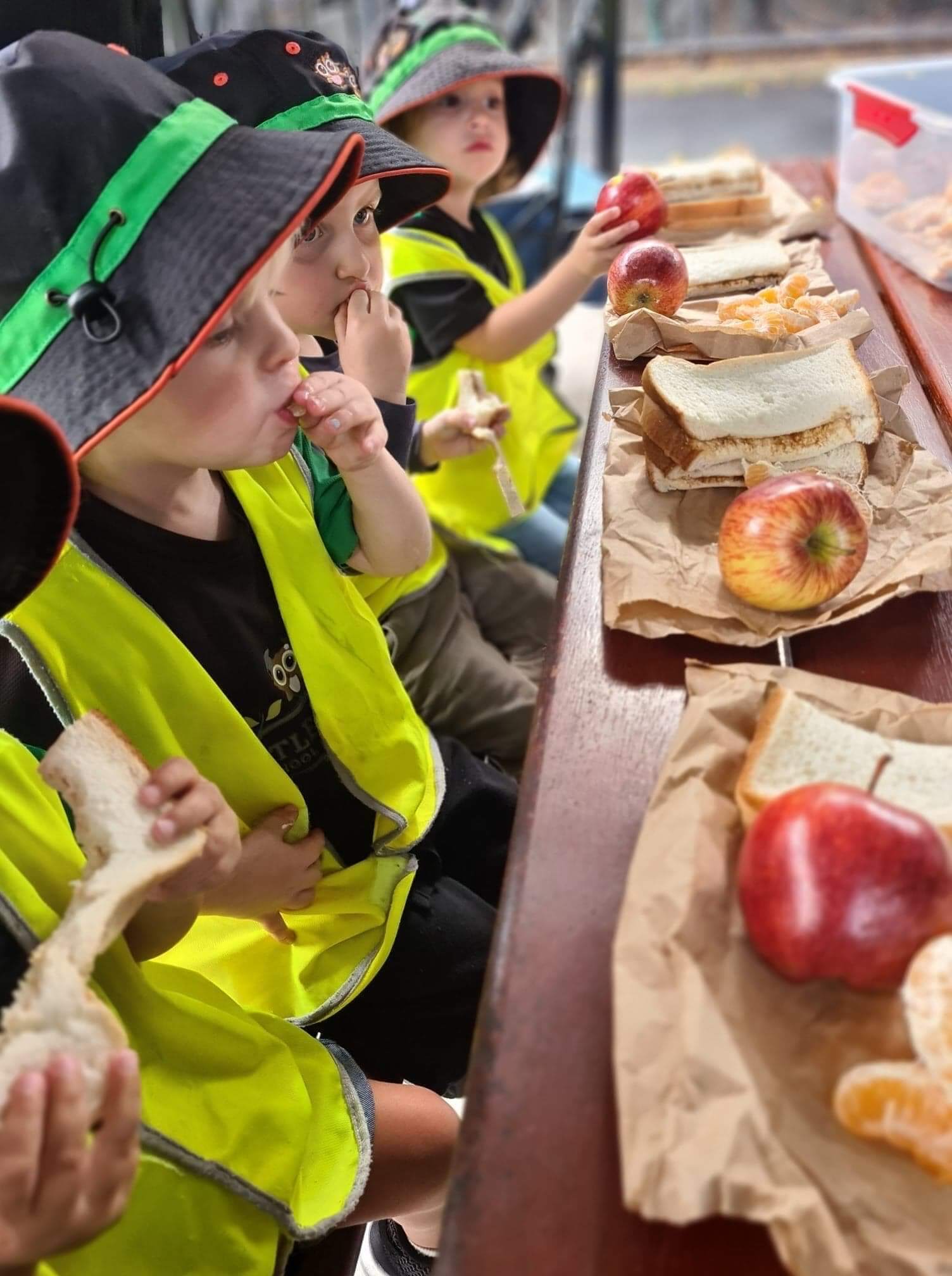If you’re a parent or caregiver to a young child, you have probably noticed that putting a screen in front of them at mealtimes keeps them sitting in their chair. But is it bad to eat while watching TV? Well, unfortunately, the disadvantages of watching TV while eating might outweigh the benefits.
Little Scholars provides an attractive and safe environment to children on the Gold Coast while giving you total peace of mind while your children are in our care. Learning areas include well-equipped playrooms and landscaped outdoor spaces for maximum learning opportunities. Book a tour today if you are looking for a childcare centre in South East Queensland.

Side Effects of Watching TV While Eating
A 2019 study found that about 70% of children in the UK watch TV during at least one meal a day. And while the UK is not Australia, it’s safe to say that the same might be true here!
But what happens when you eat in front of a screen? There are several disadvantages to watching TV while eating. Starting this habit at an early age could set a child up for negative health effects in the future. The following side effects indicate why eating while watching television could be a bad idea.
Increased Risk of Obesity
Eating in front of the TV or tablet can make children eat more. Research shows that children and adults eat more than they usually would when distracted. This increases the risk of obesity because of the excess calories that are consumed.
But eating while distracted by screens also leads to obesity as it prevents children from listening to the signals that tell them when they’re full. Over time, mealtime distraction can reduce sensitivity to hunger and fullness cues. This often leads to emotional eating, consuming unhealthy foods and snacking out of boredom.
Eating while Watching TV Might Lead to Indigestion
Eating while watching TV may cause your child to become so fixated on what they’re watching that they pay no attention to the food on their plate.
Moreover, the digestive system is stimulated by the routines surrounding mealtimes. As you prepare food, set the table and smell the meal’s aromas, your body gets into gear to digest what you’re about to eat. Encouraging children to experience all of the sensations that come with nourishing themselves will promote healthy digestion and help them absorb nutrients properly.
Mealtimes are important to a child’s development. While they eat, children work on their fine and gross motor skills, explore new textures and learn about social and interpersonal interactions. They tend to multitask throughout the day, so it’s important for children to quieten down and focus on the meal instead of a moving image on a screen.
Lower Metabolic Rate
Sitting on the sofa may burn fewer calories than sitting at a table. That’s right, watching TV may lower your metabolic rate more than simply resting without watching screens.
If children often eat in front of the TV, they’re spending less energy. Therefore, they will burn fewer calories than they might otherwise.
Reduced Satisfaction From Food
Have you ever felt the need to keep snacking while watching TV? You may feel full but wonder why you’re still rummaging through the fridge for a treat.
When children eat in front of a screen, they may not feel satisfied. The central nervous system needs to connect the dots between hunger, the desire to eat, the act of eating, the feeling of fullness and the satisfaction that comes from consuming good food. Screen distractions challenge the sensory system, putting obstacles in these pathways. If the act of eating is merely treated as an afterthought, children may continue to seek out snacks past the point of physical fullness.
How to Separate Mealtimes and Screen Time
It’s never too late to be more intentional about mealtimes. However, implementing changes surrounding screens and food can feel challenging if your child is addicted to gadgets, electronics or screens.
Start by setting up a communal mealtime. Eat with your child whenever possible. Children pick up on cues from their surroundings. Making mealtimes a pleasant, stress-free and interactive experience can help children create a healthy relationship with food. Creating this routine can lead to healthier eating habits for you and your child.
Involving your child in the process can also help them look forward to mealtimes without screens. Ask for help in age-appropriate ways. Younger children can attempt to feed themselves using a spoon. Toddlers can hand out napkins or lunch boxes. Older children can help with some of the preparation.
How to stop your children eating while watching TV
If you have trouble getting a child to eat without watching a screen, you may have to remove the distraction gradually. Wean children off of screens during meals by taking the following steps:
- Make simple rules such as you can only watch TV while eating on the weekends
- Try first muting the electronics instead of removing them completely
- Keep mealtimes brief and focused
- Make sure that the child is comfortable
- Include plenty of the child’s favourite foods
- Try other dinner pass times such as board games, or conversation games
- Invite their favourite toy to dinner. Let them have a “meal partner” that they can use their imagination with
- Encourage children to engage in activities that don’t involve screens throughout the day.
Does eating while watching TV damage your brain?
Not exactly. This habit doesn’t necessarily impair the health of the neurons. However, it does reinforce neural pathways that link eating with watching TV. This makes it harder to get through a meal without the distraction. It also promotes unhealthy eating patterns and habits throughout life.
Little Scholars Can Help Your Child Eat Healthier
At Little Scholars, we provide quality early learning and care services for children in South East Queensland in a warm and loving environment. We encourage healthy eating and provide freshly cooked, nutritious and allergen-aware meals for all of our children. We also sit together and talk while we eat, encouraging meaningful connections and conversation with children and educators while we sit down to a healthy meal.
We aim to be an extension of your family while fostering nurturing relationships between our educators and children, as well as the relationships between the children who attend our program. Valuing all our relationships is important to us – with you as the parent or guardian, your child, and other loved ones in your life. Book a tour today.



